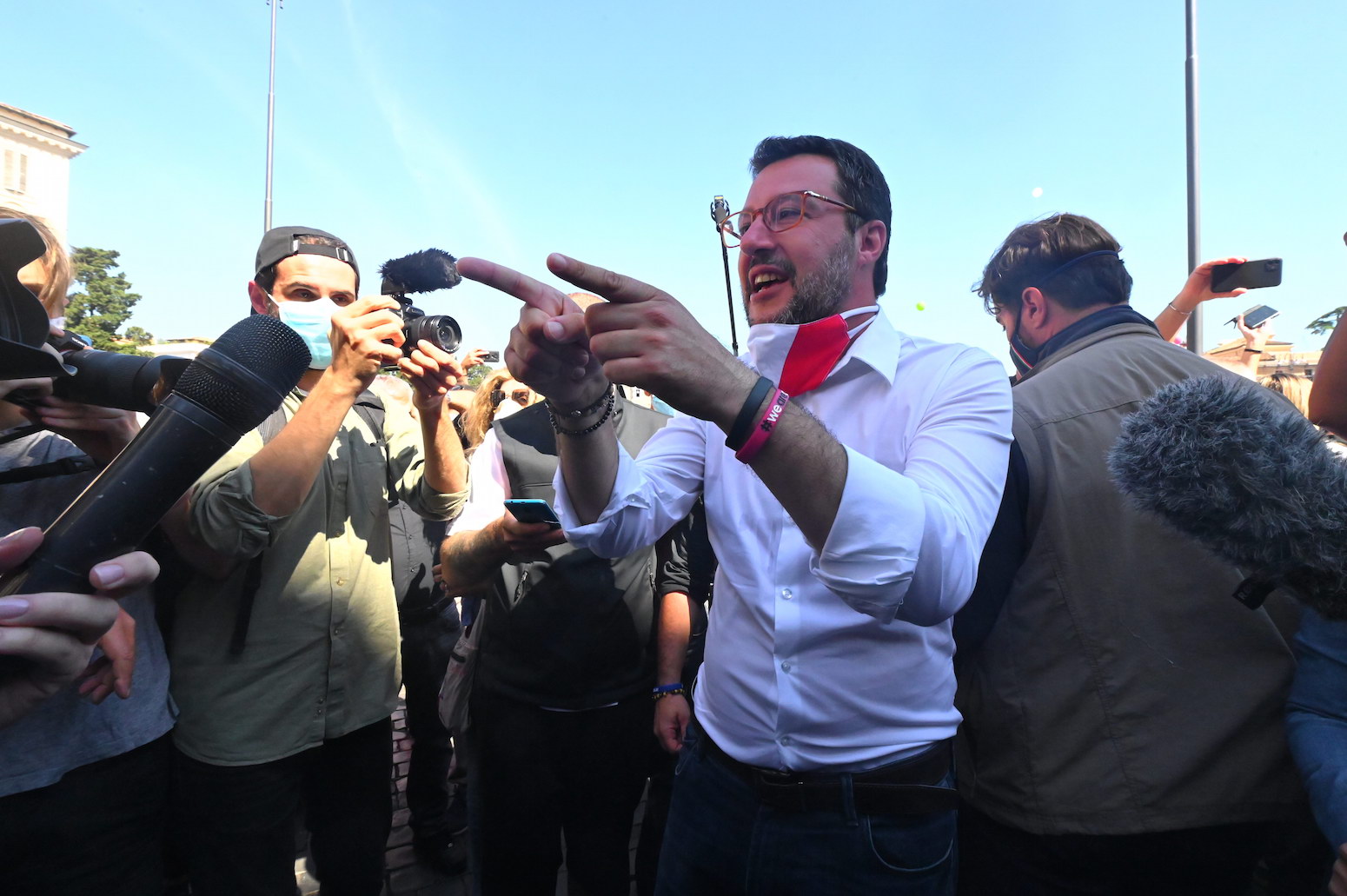Senator Matteo Salvini, head of Italy’s most popular party and leader of the opposition, has called for more pressure on China to take responsibility for its role in the diffusion of the Covid-19 pandemic.
Referring to the trials held under international law to judge senior figures of the Nazi regime in the aftermath of World War II, Mr. Salvini voiced his concern that Italy, and the international community, are not scrutinising China’s initial handling of the pandemic hard enough.
“More than 116 countries are asking for [an international inquiry], and I’d expect more strength from Italy when demanding truth and justice from China,” he said in an interview with Formiche.net.
“The Chinese communist regime’s responsibilities are serious and clear, from the delayed alert to the continuous attempts to bury any request of data and in-depth analysis coming from the international community, without forgetting the systematic police repression of every free voice from the inside.”
As Italy is among the countries where the pandemic has wreaked more havoc, Mr. Salvini described the current government’s “months of silence” as “unforgivable”.
“Despite having over 30,000 victims, despite the sacrifices of lockdown, despite the economic crisis that we’re preparing to tackle, none of our ministers – much less prime minister Conte – had had the courage to utter a single word to denounce the Chinese regime’s responsibilities.”
A supporter of NATO and admirer of US President Donald Trump, Mr. Salvini was, until last year, Italy’s interior minister and deputy prime minister.
Nonetheless, his right-wing League has always had more than one soul with regards to its foreign policy alignment.
Mr. Salvini himself was historically closer to Vladimir Putin’s Russia, with which he shared a vision of Christian traditionalism and Euroscepticism; whereas his more moderate second-in-command, Giancarlo Giorgetti, had always leaned towards Atlanticism.
Mr. Salvini’s recent hard-line stance towards China might be clearer if we consider his newfound desire to burnish his reputation as an Atlanticist. Seeing as he is seeking to project himself as the potential next prime minister, he is willing to side with the US to reinforce his position on the geopolitical chessboard.
Despite his current stance on China, Mr. Salvini was a key figure in the signing of Italy’s adherence to the Chinese Belt and Road Initiative (BRI), as it happened in March 2019, while he was still deputy prime minister.
Italy is the first and only G7 member to partake in the BRI, which would link Beijing to the West by creating a preferential and extremely wide-in-scope commercial corridor. The agreement is worth roughly €2.5 ($2.8) billions.
Like most of Europe and the US itself, Mr. Salvini is wary of an increase in Beijing’s influence over the West. Back in 2019, he had voiced concerns even as his governing partners, the anti-establishment Five Star Movement, enthusiastically promoted the BRI.
“It’s fine to encourage an economic understanding with our businesses, but this cannot be a Trojan horse that indulges Beijing’s geopolitical projects,” he told us.
“It’s not just a matter of unfair competition and cybersecurity, we’re talking about our identity, about democracy, about the hard-earned rights we’ve conquered which we cannot afford to sell out in exchange for a rice bowl.”
Siding with Donald Trump’s adversarial stance towards China, Mr. Salvini said that the way Italian state media treats the US president makes him feel like Italy is looking elsewhere, geopolitically speaking.
“Luckily the future of our country will soon be out of [the current government’s] hands, else we’d have to worry. I wouldn’t want that someone could take advantage [of Italy and China’s strengthening relationship] to sell off other pieces of our crisis-ridden economy.”
Not unlike Mr. Trump, Mr. Salvini opposes the installation of Chinese-built 5G antennas, citing security concerns.
The US has been warning European countries about the dangers of allowing Huawei, the Chinese state-controlled tech company, to provide core infrastructures necessary for the next-gen telecommunication standard. Beijing rejects all accusations of foreign interference.








